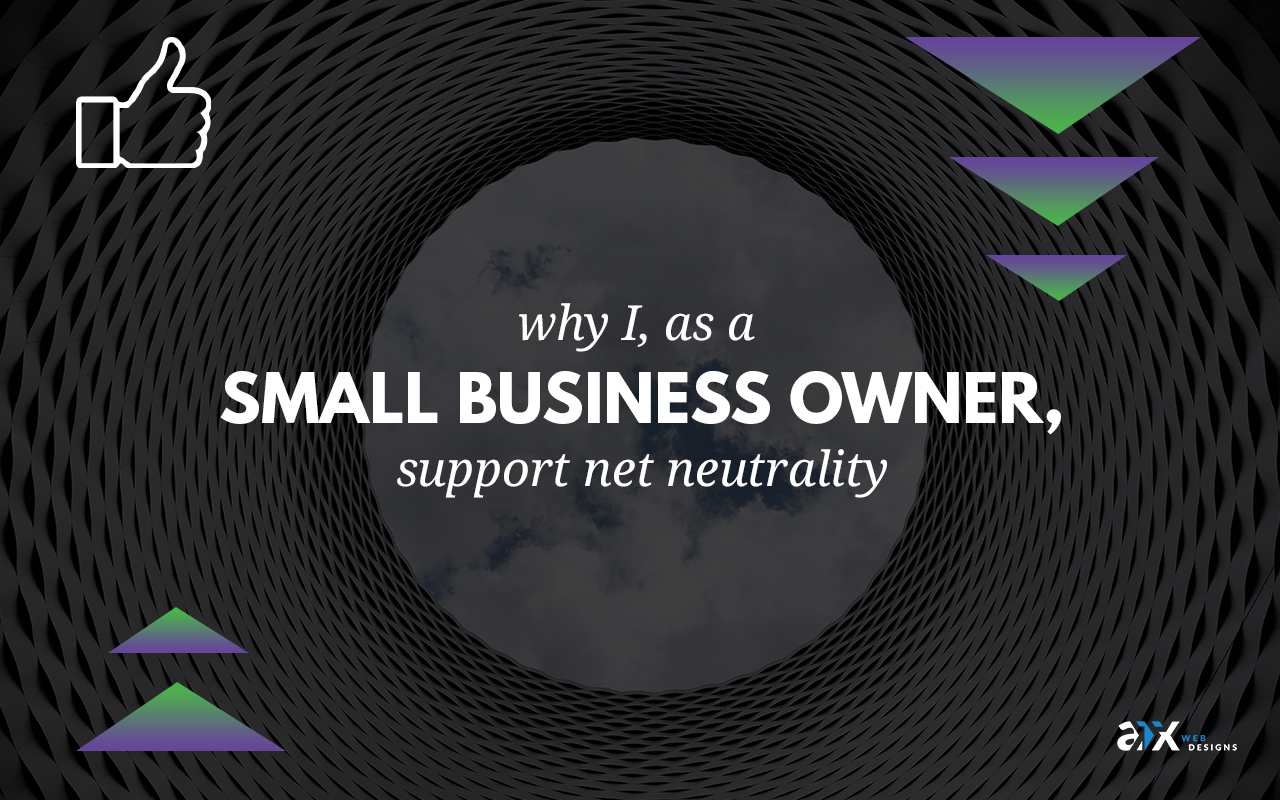This article expresses my personal opinion and does not necessarily reflect the views of ATX Web Designs or anyone who works for it.
On November 21 the FCC announced its plan to repeal net neutrality. FCC Chairman Ajit Pai said it was to stop the government from “micromanaging” the internet.
Look, the government is not micromanaging your internet. You can go to literally any website in the world right here from your US computer. You can do dark and evil things–for better or for worse!–and no one in the government is going to stop you. There is no micromanagement happening here.
Further, Pai stated that the repeal will allow consumers to “buy the service plan that’s best for them” which, don’t we already? And–here’s where you come in– give “entrepreneurs and other small businesses can have the technical information they need to innovate.”
Uh, when the was the last time you were happy that someone threw up a wall on your route to work, then gave you “technical instructions” to innovate to innovate yourself a new route to work?
Never. Because it sucks. This isn’t about small businesses being able to innovate. This is about big (ass) businesses getting even bigger and richer by making you pay for access to your consumers.
It is genius. It is brilliant. It is terrible.
You are a small business owner. You paid for your web redesign and you paid for SEO optimization. You can now pay your bills and your employees because the things you did to set your business up and get the word out to your market–they worked! And they didn’t require any technical information or innovation. You paid some very skilled people to help you get started and now you have just as much access to your market as your biggest, gnarliest competitor.
Now, conceivably, with an unneutral internet, you could grow big enough to effectively slow down consumer access to your competitor’s website (by speeding up access to your own). Like I said, it’s pretty brilliant.
Except, now your ability to reach your customers is also in the hands of a giant, extremely wealthy telecommunications company.
The (Real) Final Frontier
I like the internet. I like the organic subcultures. I love that some kids built an empire from the college dorm. I love that Ze Frank just started making weird videos one day and got people around the world (!) to make an Earth sandwich and that not only did people come together to do it but that it spawned a generation of YouTubers making great content, content that is educational and funny and creative, content that drives entire ecosystems of the internet and, in many cases, actively betters the world.
Maybe that’s not why you love the internet, but at the heart of it is the reason we’re all here: it’s a space and a tool that connects us to one another. We can use it to launch our businesses and grow our platforms, or we can keep in touch with our grandkids. We can watch silly cat videos or spend the weekend binge-watching seasons 1 and 2 of Stranger Things.
The point is: you get to decide. I get to decide. We get to do whatever the hell we want on the internet. If we want a subscription to YouTube or Netflix or HBO Go, it’s up to us. No one decides, or charges us more for wanting All The Things.
In a world where everything costs money, the incredible, unmatched freedom of the internet is literally free. If you can make it to a library, you can make it to the entire world.
What else is out there that is even close to that?
I’m a small business owner. I imagine that if you’re reading this, you are too. It’s not that we use the internet everyday; it’s that we depend on it.
And to me, that’s the most outrageous part. People with lots of money and power and influence are giving themselves even more money, power and influence–at my expense.
“And suddenly what we’ll have instead of an infinite variety of crap is a finite amount of crap. And a finite amount of crap is just crap, whereas an infinite amount of crap? Is hope.” source.
I’m with Hank Green on this one.
An Ostensibly Unrelated but Equally Important Thing: My favorite podcast ReplyAll did a show in April of this year about another FCC decision that impacts internet users. The decision allows Internet Service Providers to sell your (!) search history to advertisers. Which doesn’t seem like a big deal except that now everything you’ve ever put in your search bar is up for grabs. Like Net Neutrality, it seems like an issue that we know is bad, and we have trouble imagining just how bad it could be. Have a listen. Let me know what you think:
Want to Learn More About How Net Neutrality Impacts You?
Lots of people explain it way better than I can. I’m partial to this video analogy by Hank Green, and his 3-minute for/against debate. NPR put together this good primer article. Public Knowledge works to promote an open internet by shaping policy. To read more about it or to take action, visit their website.






